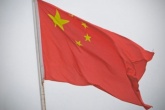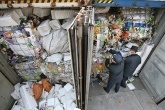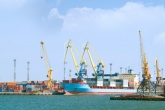Malaysia and Vietnam follow China’s lead with waste import restrictions
Both Vietnam and Malaysia have introduced import restrictions in response to the increased volumes of waste entering the countries in the months since China’s ban on 24 grades of solid waste – casting further doubt on the ability of other South-East Asian economies to absorb China’s lost capacity.
Last week, Vietnamese Prime Minister Nguyen Xuan Phuc announced that the country would not be issuing any new import licenses. Vietnam is set to follow up its new restrictions with a crackdown on smuggled waste as more than 6,000 containers of paper, plastic and metal scrap remain in limbo at Vietnamese customs points awaiting processing, according to reporting by Reuters.
Meanwhile, Malaysian Minister of Housing and Local Government Zuralda Kamaruddin said that Malaysia has revoked licences for 114 factories around the country, although state news agency Bernama has reported that facilities with approved permits may continue to import material and those which have seen their permits revoked should re-apply within three months.
The import restrictions imposed by the two countries are not entirely unpredictable given the flood of waste into these countries following China’s own restrictions, which have sent the recycling world into a headspin.
China announced at the start of the year that it would be banning imports of certain types of solid waste, including post-consumer plastics and mixed papers. This provoked panic in the UK recycling industry given that the UK – up until the start of the year – relied on China as an outlet for waste that could not be recycled domestically, sending around 494,000 tonnes of plastics and 1.4 million tonnes of recovered paper to China every year.
In preparation for the ban, many UK recyclers searched for alternative markets for waste materials, with countries in South-East Asia identified as possible options including Thailand, Malaysia, Taiwan and Vietnam.
And according to figures from HM Revenue and Customs (HMRC), UK exporters have wasted no time in rerouting exports once destined for China. Exports of plastic waste to China fell by 97 per cent in the first four months of 2018, while exports of plastics to Malaysia have tripled, becoming the single largest destination for UK plastics waste. Exports to Thailand also increased by fifty times and those to Taiwan increased by ten times. Vietnam, meanwhile, saw several ports cease to accept new plastics imports after accruing huge backlogs due to a 50 per cent increase in imports from the UK.
A question of quality
With countries that were previously reliable destinations for waste exports appearing to now take a tougher line on environmental protection and pollution, these latest import restrictions once again raise questions around the sustainability of the waste export market and the quality of recyclate exported from the UK.
Back in October 2017, when details of China’s import restrictions began to become clearer – including a 0.3 per cent contamination limit for imports, which was later raised to 0.5 per cent – Marcus Gover, CEO of the Waste and Resources Action Programme (WRAP), stated that UK recyclers and exporters would have to focus on quality if markets for their waste exports were to remain open, saying: ‘We all need to recognise that improving the quality of recycled materials is critical to the continued growth and success of the whole recycling supply chain. China and other countries importing recovered materials need to feel confident we are not dumping our waste on them… Measures such as moving away from simplistic weight-based targets and options for extended producer responsibility could contribute to increasing quality.’
The recycling industry is certainly conscious that we need to make big changes in the way we deal with our waste. Ray Georgeson, Chief Executive of the Resource Association, called on the government in January to show ‘bold and radical’ leadership in getting the UK recycling sector to improve the quality of recyclate, as well as to create domestic markets to stimulate demand for secondary materials at home. “As China says ‘enough’,” Georgeson commented at the time, “we must now use this moment to seize the opportunity it presents to rebalance the UK recycling economy and return to the unfinished tasks of developing our own markets and sustainable end uses for our secondary materials.
“A whole ‘circular resource economy’ approach that tackles collection, material handling, reprocessing, production, retailing and consumer behaviour would help deliver the benefits of smarter use and better recycling of plastics in the UK as well as send the right signals in support of taking responsibility again for the resources we use.
“The time has come for Defra and WRAP to once again assume a leadership role on this aspect of resources policy. If government chooses to engage, research and act, the industry will respond.”
Calls have repeatedly been made in recent months to stimulate secondary markets for recycled plastics in the UK, in order to avoid the need for exports. A report released in June by environmental think tank Green Alliance stated that recycled plastics could provide 71 per cent of domestic manufacturing demand, while the government’s Industrial Strategy released last November acknowledged the need to strengthen secondary markets and domestic demand for recycled materials. The industry now awaits the highly anticipated Resources and Waste Strategy, expected this autumn, for evidence that the government has taken these calls on board.
Exporting to landfill?
Action to reshore the UK’s waste will need to happen with some degree of urgency, as public concern regarding the export of waste and recyclable materials in particular appears to be on the rise.
At the end of July, the national Audit Office (NAO) released a report on the UK packaging recycling system – the Packaging Recovery Note (PRN) system – which stated that inadequate monitoring and oversight of the system leads to a distinct lack of clarity on how exported waste is handled upon arrival at its destination overseas. The Environment Agency only made four queries to overseas agencies requesting that they check registration documents in 2017, compared to 53 in 2014.
This was picked up by the national press, with many publications suggesting that the UK is exporting waste to landfill – The Independent ran with the headline ‘UK waste sent overseas for recycling could end up in landfill instead, says watchdog’, while the Guardian led with ‘UK’s plastic waste may be dumped overseas instead of recycled’.
Phil Conran, CEO of 360 Environmental, questioned the reporting of the outcomes of the NAO report, saying: Debate all seemed to be that we were exporting waste to be landfilled. That was not the main outcome of the report. It was a misrepresentation of what the report was saying – we don’t export waste to be landfilled, we export it to be processed, and as part of that process, you will have material that comes out of the the cleaning process that has to be landfilled.
“The economics do not stack up to export waste to landfill, we export waste to be recycled and a proportion of what we send to be recycled will end up in landfill as part of that process. It is a misrepresentation of the facts. There is a danger the public will be turned off recycling if they start to believe the message that the stuff they carefully separate and put in their recycling bins goes overseas to landfill.”
Meanwhile, many will question why exports continue to be shipped to countries with far weaker environmental protections and regulations than the UK, when well-publicised research from the Helmholtz Centre for Environmental Research published in October 2017 states that 88 to 92 per cent of all plastic entering the marine environment comes from ten rivers in Africa and Asia, with Asia being one of the primary export destinations for UK waste paper and plastics.









